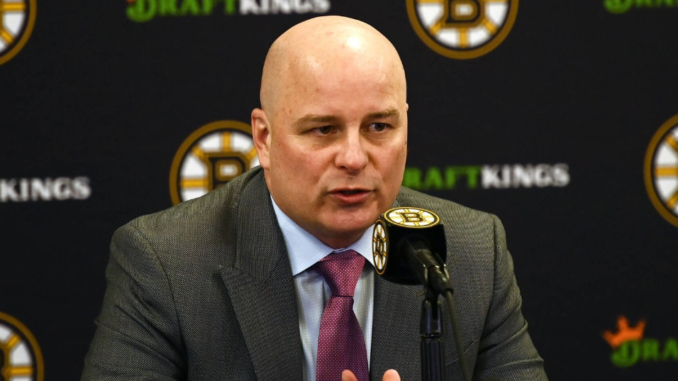
The Boston Bruins, who have had a strong start to the 2024 NHL season, found themselves facing a familiar nemesis in the form of their long-standing issues during a recent clash with the Toronto Maple Leafs. In a game that left fans frustrated and analysts rehashing old concerns, the Bruins suffered a 3-0 shutout loss on home ice, underscoring persistent weaknesses that have plagued the team for seasons past.
Defensive Lapses and Lack of Scoring Depth
Boston’s defensive prowess has been a cornerstone of their success for years, but in their matchup against Toronto, cracks emerged that proved costly. While the Bruins have emphasized structure and discipline in their defensive schemes, lapses in coverage and hesitation in critical moments allowed Toronto’s fast-paced offense to capitalize. Key defensive breakdowns led to Toronto’s goals, exploiting Boston’s periodic inability to clear the zone effectively and reset under pressure.
The Bruins’ scoring depth, which has been a hot topic among fans and analysts, once again proved problematic. Despite boasting a lineup featuring the likes of David Pastrňák and Brad Marchand, the Bruins struggled to generate high-quality scoring chances. Toronto’s defensive efforts, combined with Boston’s inability to adapt and find creative paths to the net, left the home crowd restless. With just 24 shots on goal, few of which were high-danger opportunities, the Bruins found themselves smothered by Toronto’s strategic play.
Goaltending: A Silver Lining Amidst the Struggle
While the Bruins’ loss may have been sobering, it’s worth noting that goaltender Jeremy Swayman continued to showcase his skill, making a series of impressive saves to keep the game within reach. Despite conceding three goals, Swayman’s performance was a reminder that Boston’s netminding duo, which also includes Linus Ullmark, remains one of the strongest in the league. His quick reflexes and poise under duress were a silver lining, even if the scoreboard failed to reflect his effort.
Calculated Risk or Stagnation?
Head coach Jim Montgomery has been candid about the team’s approach to adapting their play this season. With a roster featuring new additions and evolving line combinations, there has been an intentional effort to balance aggressive forechecking with defensive reliability. However, the loss to Toronto raised questions about whether the Bruins’ strategic adjustments have taken a step back rather than forward.
The offensive system’s inability to consistently penetrate top-tier defenses like Toronto’s may suggest that the Bruins need a recalibration. The reliance on core veterans remains a double-edged sword—while their experience is invaluable, it exposes a pressing need for contributions from younger, secondary players to step up and provide a spark.
Special Teams Struggles
Special teams play has long been a barometer for the Bruins’ overall performance, and their power play was a glaring weakness in the loss. Toronto’s penalty kill stifled Boston’s efforts, cutting off passing lanes and preventing entry plays that could have shifted momentum. The Bruins’ power play, which can dazzle when functioning smoothly, lacked the dynamism and execution needed to break through Toronto’s coverage.
On the other side, Boston’s penalty kill, typically a point of pride, also looked less sharp, with communication errors leading to extended Toronto possessions and ultimately a goal that put the game out of reach.
Moving Forward: Addressing Familiar Flaws
If the Bruins are to maintain their competitive edge in a tough Atlantic Division, addressing these familiar flaws is essential. The shutout loss highlighted not only tactical concerns but also the psychological weight of consistent issues reappearing under high stakes.
The Bruins’ leadership core, including Marchand, Pastrňák, and Charlie McAvoy, must find ways to rally the younger players and instill confidence that transcends single-game outcomes. Moreover, coach Montgomery’s approach to tweaking strategies must evolve, emphasizing the need for adaptable systems that can withstand the varied defensive structures they will face throughout the season.
Final Thoughts
While a loss to a top rival like Toronto is never ideal, it serves as a necessary checkpoint for a Bruins team that aspires to remain among the NHL’s elite. The takeaway for Boston is clear: there is still work to be done, both on the ice and in the locker room, to fine-tune their approach and solidify their standing in the conference.
As the season progresses, Boston will need to balance the push for immediate results with the long-term vision of playoff preparedness. If they can address their recurring issues, this loss may serve not as a setback, but as a turning point toward building a more resilient and complete team.

Leave a Reply